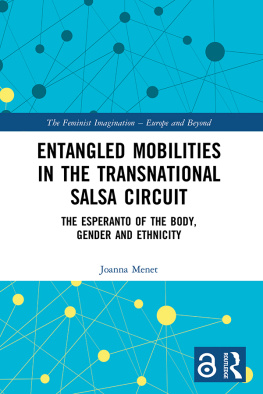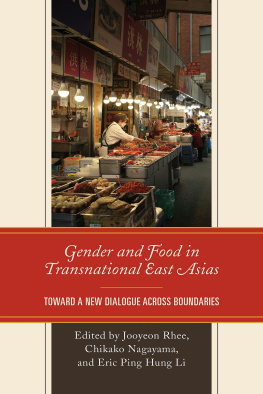
Transnational Musicians
Informed by theories pertaining to transnational mobility, ethnicity and race, gender, postcolonialism, as well as Japanese studies, Transnational Musicians explores the way Japanese musicians establish their transnational careers in the hierarchically structured classical music world.
Drawing on rich material from multi-sited fieldwork and in-depth interviews with Japanese artists in Japan, France and Poland, this study portrays the structurally and individually conditioned opportunities and constraints of becoming a transnational classical musician. It shows how transnational artists strive to conciliate the irreconcilable: their professional identification with the dominant image of rootless classical musicianship and their ethnocultural affiliation with Japan. As such this book critically engages with the neoliberal discourse on talent and meritocracy prevailing in the creative/cultural industry, which promotes the common image of cosmopolitan artists, whose high, universal skills allow them to carry out their occupational activity internationally, regardless of such prescriptive criteria as gender, ethnicity and race.
Highly interdisciplinary, this book will appeal to students and researchers interested in such fields as migration, transnational mobility, ethnicity and race in the creative/cultural sector, gender studies, Japanese culture and other related social issues. It will also be instructive for professionals from the world of classical music, as well as ordinary readers passionate about Japanese society.
Beata M. Kowalczyk is an Assistant Professor at the Faculty of Sociology, Adam Mickiewicz University, Pozna, Poland.
Routledge Research in Transnationalism
Transnationalizing Inequalities in Europe
Sociocultural Boundaries, Assemblages and Regimes of Intersection
Anna Amelina
Ethnomorality of Care
Migrants and their Aging Parents
Agnieszka Radziwinowiczwna, Anna Rosiska-Kordasiewicz and Weronika Kloc-Nowak
Cultures of Transnationality in European Migration
Subjectivity, Family and Inequality
Karolina Barglowski
Transnational Politics, Citizenship and Elections
The Political Engagement of Transnational Communities in National Elections
Chiara De Lazzari
38 Charting Transnational Fields
Methodology for a Political Sociology of Knowledge
Edited by Christian Schmidt-Wellenburg and Stefan Bernhard
Transnational Musicians
Precariousness, Ethnicity and Gender in the Creative Industry
Beata M. Kowalczyk
For more information: https://www.routledge.com/Routledge-Research-in-Transnationalism/book-series/RRT
Transnational Musicians
Precariousness, Ethnicity and Gender in the Creative Industry
Beata M. Kowalczyk
First published 2021
by Routledge
2 Park Square, Milton Park, Abingdon, Oxon OX14 4RN
and by Routledge
52 Vanderbilt Avenue, New York, NY 10017
Routledge is an imprint of the Taylor & Francis Group, an informa business
2021 Beata M. Kowalczyk
The right of Beata M. Kowalczyk to be identified as author of this work has been asserted by her in accordance with sections 77 and 78 of the Copyright, Designs and Patents Act 1988.
All rights reserved. No part of this book may be reprinted or reproduced or utilised in any form or by any electronic, mechanical, or other means, now known or hereafter invented, including photocopying and recording, or in any information storage or retrieval system, without permission in writing from the publishers.
Trademark notice : Product or corporate names may be trademarks or registered trademarks, and are used only for identification and explanation without intent to infringe.
British Library Cataloguing-in-Publication Data
A catalogue record for this book is available from the British Library
Library of Congress Cataloging-in-Publication Data
A catalog record has been requested for this book
ISBN: 978-0-367-41850-2 (hbk)
ISBN: 978-0-367-81656-8 (ebk)
Typeset in Times New Roman
by Deanta Global Publishing Services, Chennai, India
To Micha, with love
Contents
This book would not have been completed without the patient and kind support of many people who sacrificed their time to share with me their personal stories, discussed issues which were perturbing me and offered their advice. The analysis developed in this text is based on the material drawn from in-depth interviews with Japanese musicians. Therefore, my first words of thanks are addressed to all the participants in this project, who trusted an unknown person, confided in me their experiences and opinions, guided me through the world of classical music, introduced me to their friends and invited me to concerts and rehearsals. Without their sincere involvement, I could not have accomplished this study.
I also want to express my deep gratitude to my advisers, Professor Izabela Wagner from Collegium Civitas in Warsaw, and Professor Marie Buscatto from the Universit Paris 1 Panthon-Sorbonne, who guided me through the painful process of writing my doctoral thesis, which was the first, albeit significantly different from the one presented in this book, attempt to interpret the collected research material. Throughout my doctoral studies, I matured as a researcher, benefiting from their peerless sociological knowledge, which they conveyed through judicial and inspiring comments. My work has been also improved by the wise feedback of colleagues from the Department of Sociology of Work and Organizations at the Institute of Sociology (University of Warsaw). I thank them very much. I also extend thanks to my colleagues from the Faculty of Social Sciences (Adam Mickiewicz University in Pozna) for granting me time to work on this book.
I wish to thank Andrzej Sasin, Aleksandra Nagrko and members of the Polish National Philharmonic. I am also grateful to Pierre Gonzalez, Professor Tamagawa Yko, Sawa Kazuki, Robert Ryker and many others whom I cannot name personally for their generous help at various stages of the process of writing this book. An acknowledgement of gratitude is due to Sabrina Haenze and Thomas Anessi, who carefully corrected and fine-tuned the English of the manuscript. Heartfelt thanks also goes to Emily Briggs and Lakshita Joshi at Routledge for their dedicated support throughout the publication process and to the anonymous reviewers for their insightful comments.
I wish to thank my partner, who was the first reader of the text, and provided me with inspiring advice and constant encouragement for my work. Without his heartful support, it would have been difficult to bring my project to an end. I am thankful to my family for being there for me whenever I needed.
All of these people supported me a great deal with their insightful advice. Nonetheless, the ideas and interpretations presented in the book are mine, as are any possible mistakes and shortcomings of the developed analysis.
I could carry out my research in France owing to the French Government Scholarship (BGF).
I follow the Japanese name order, in which the family name precedes the given name. Japanese terms are transliterated based on the modified Hepburn system. Circumflexes indicate long vowels, except in commonplace names, such as Tokyo. When not otherwise indicated, all excerpts from the interviews and citations from French, Japanese and Polish texts are translations by the books author.










